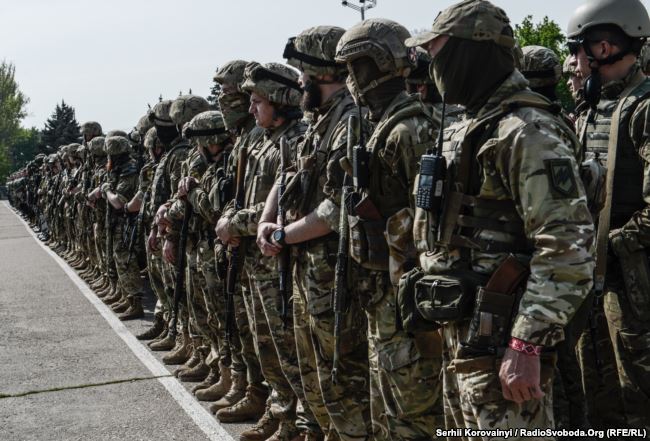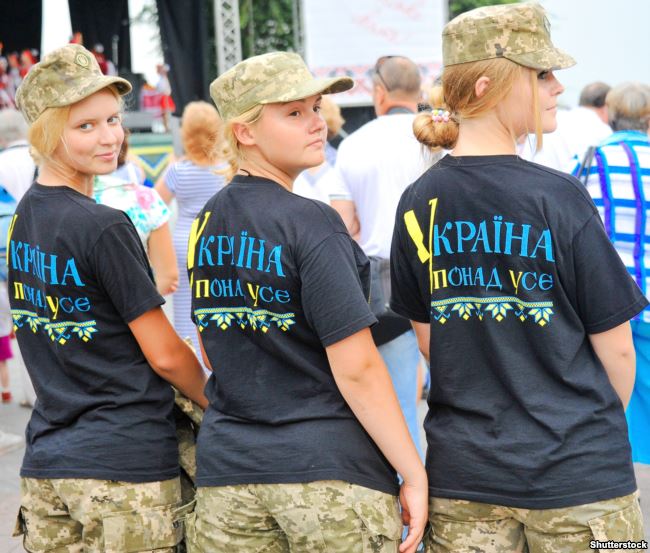In 2014, during the implementation of the "Novorossiya (New Russia) plan" Russian special services paid particular attention to Odesa. For the Russians it was important not only to seize Crimea and to "destabilize" the situation in the Donbas, but also to carry out similar activities in other eastern and southern oblasts in Ukraine. They probably planned to create a sort of semicircle of Russian controlled territories in eastern and southern Ukraine that stretched from Sloboda Ukraine (Slobozhanshchyna) and the Donbas to the border with the self-proclaimed Transnistrian republic, which has become a kind of Russian base on the border between Ukraine and Moldova.
It is no wonder that in December 2013, at the beginning of the Revolution of Dignity, the "parliament" of the republic requested the State Duma of Russia to draw up a law that would unite Transnistria with Russia.
Let us remember what was happening then. The Russians had just started to implement the "Novorossiya project." The annexation of Crimea had begun and the "Russian spring" was spreading. The pro-Russian forces in Odesa had also become active. There is no doubt that if they had seized the city, the "Novorossiya semicircle" would have been completed and would have extended to Transnistria.
The Odesa provocations

Of course a number of Odesa residents have pro-Russian or even pro-Soviet attitudes. Although there are pro-Ukrainian forces here, they have not yet succeeded in gaining power in the city. However, in 2014, Odesa was in no hurry to become Russian. There were reasons for that. The Odesites, especiallly the businesspeople, understood that becoming some "Novorossiyan republic" would mean exposure to international sanctions, isolation, and ultimately the loss of many business advantages afforded by the city's favorable geographic location on trade routes. Besides, they had the example of the isolated Transnistrian Republic.
Incidentally, Transnistria played a significant role in the 2014 events in Odesa. This self-proclaimed republic is within a stone's throw from Odesa. There was no serious border with Transnistria. This is why pro-Russian "tourists" who staged provocations came to Odesa from Transnistria. The separatists in Odesa were (at least partially) coordinated from Transnistria. Additionally, supporters of Novorossiya who had failed in Odesa fled to Transnistria to avoid prosecution in Ukraine.
Even though the pro-Russian forces failed to take Odesa, this does not mean they have disappeared. Russian agents are numerous and active here. This is why it is likely that Russian special services have been planning to carry out an operation in Odesa this year with the goal of taking revenge. There are symbolic reasons for this. May 2 marks another anniversary of the deaths of some 40 separatists in Odesa's Trade Union building (their deaths have still not been fully investigated) and "Victory Day," on May 9, has always served as a pretext for the pro-Soviet and pro-Russian forces to carry out their actions.
For some reason (!) it was just before May this year that the deputies of the Odesa city council suddenly decided to cancel the renaming of the city streets that had been completed during decommunization. I don't think there are ideological communists among these deputies, but undoubtedly many of them are pro-Russian. This decision by the city deputies, especially at this time, looks like a provocation. The decision has been overturned in court, but the conflict has a symbolic character, and we certainly should not underestimate it. After all, people's behavior is driven not only by the realities of the real world but also by those of the symbolic world. For example, people can be mobilized to action not so much by economic issues as by issues of language, religion, respect for certain dates and heroes and so on.
I would not be surprised if the supporters of the "Russian world" tried to organize support for the actions of the deputies of the Odesa city council who advocated for cancelling the "decommunized" street names. They may even resort to street protests. And if demonstrations to honor the people who died three years ago in the Odesa Trade Union building are added, as well as celebrations of "Victory Day," this could create an explosive mixture capable of "destabilizing" the situation in Odesa.
Will the May holidays be peaceful in Odesa?

Ukrainian government officials understand the meaning of Odesa. This is why enhanced security is planned for the May holidays. Various law enforcement units are involved in maintaining order.
It is assumed that a large number of police officers will be keeping order in the city during these days. And not only the police. Border control with Transnistria will be strengthened, since provocations are expected from there. However, I think pro-Russian "tourists" from Transnistria can easily get to Odesa through the Moldovan border. After all, it is not difficult to come to Moldova from the self-proclaimed republic and then to travel to Odesa. This is why during the May holidays the border control should be strengthened along the Moldovan border as well.
Of course, much depends on the security forces, but not everything. If demonstrations become widespread, then police and the army may turn out to be powerless. I trust that massive pro-Russian demonstrations will not happen in Odesa.
In fact, despite the presence of pro-Russian forces in this city, they are not as powerful as in Crimea or the Donbas. This was demonstrated by events in 2014 and in subsequent years. Additionally, as already mentioned, there are pro-Ukrainian forces in Odesa as well. They should not be overestimated, but they are capable of resisting the supporters of the "Russian World."
In addition, there are economic factors that should prevent too much riotous behavior by pro-Russian forces in Odesa. It is not only the fear of Odesa's businesspeople of becoming part of some unrecognized " Novorossiyan republic." There is also another economic factor. After the Russian occupation of Crimea, many Ukrainians who used to vacation on the peninsula in the summer have begun to go Odesa and the Odesa Oblast. And this represents serious income. Clearly, the pragmatic Odesites will not rush to support the adventurers of the Russian World. It is not in their interest.
We will hope that May 2 and May 9 will be relatively quiet in Odesa. That law enforcement will be able to prevent possible provocations. And that the Odesa residents will not support the pro-Russian forces.
In general, the beginning of May will be one of the tests of the strength of the Ukrainian state. We hope the tests will be successful.
Historian Petro Kraliuk is vice-rector at the National University of Ostroh Academy

